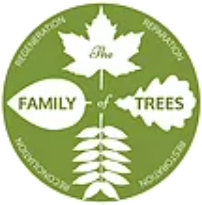Parts excerpted from www.reduce.org
“The less we take with us into the mountains, deserts, forests or waters, the more their spirit informs and enlivens us. We should be as reliant on our wits as much as possible and on “things” as little as possible. This means we should wear and carry as little as we can get away with while being in, and moving through, the natural world.” — Yvon Chouinard, Patagonia
The U.S. Travel Data Center estimates that 43 million U.S. travelers are “ecologically concerned.” It is important that we think about our actions when we are traveling. Being on vacation does not mean we should take a vacation from our environmental practices. If we recycle at home, then we should recycle on the road. This might mean carrying that empty juice container all day in a backpack until there is a recycling bin available. It might also mean not buying bottled juice at all and going for the fresh juice that can be put into a reusable cup. These small actions that we take while traveling are very important when we consider that there are 43 million other travelers buying and consuming. It is our responsibility to take care of the places we inhabit, and to show that we respect the place we are traveling to, that others inhabit. There are several ways that travelers can reduce waste while traveling. Here are just a few ideas to get started.
- Businesses are responsive to their guests, customers and clients who voice concerns, so speak up. If you have compliments or comments regarding their company’s environmental performance, write a note or speak directly to the general manager of the hotel, the operator of a resort or campground, the captain of the airplane, or the manager of your tour company.
- Book your guestrooms, campsites or meeting rooms in places that are clearly interested in protecting our environment, and let management know that’s why you’ve chosen their establishment.
- Encourage the places you visit to reduce waste and to implement water- and energy-saving measures.
- Use reusable bags, storage containers and towels.
- Rent equipment, avoid disposables, and pack waste-free picnics by bringing reusables and recyclables home with you.
- Buy fruits and vegetables without packaging.
- Purchase electronic tickets for air travel whenever possible. Gas boats on land instead of in the water to reduce pollution in lakes and rivers. Upgrade to the most efficient boat motor. A 4-stroke engine is quieter, 40 times cleaner, and 2 to 4 times more fuel-efficient than a 2-stroke engine. (Focus 10,000: Minnesota’s Lakeside Magazine, July 1999)
- Keep campfire ash far from lakeshores to protect water quality.
Travel Tidbit: Popular Parks
For outdoor recreation, state and national parks are a natural choice. Minnesota’s State Park system is the second-oldest in the U.S., and includes 70 state parks and recreation areas that total more than 240,000 acres. State parks hosted over 8.5 million visitors in 1998, offering hiking, camping, interpretive programs, bike trails, tours and exhibits for the whole family to enjoy. Americans will make an estimated 291 million visits to National Parks in 2000 – nearly one visit for every U.S. citizen. Learn more about the National Park system by visiting www.nps.gov or see RECREATION: Forests & Parks.
Feed Yourself (not the trash)
Food and packaging waste accounts for as much as half of what is thrown away in a day, especially when you are far from home. Yet there are some easy ways for you to reduce how much food and packaging you throw away.
- Reduce fast food waste and excess packaging in carryout food. “No thanks, I don’t need a bag,” may draw a curious look, but sometimes you have to speak up for what you don’t want. Carry your own reusable mug to avoid disposable cups. Pack a cooler of food bought in bulk or deli-style (which are often “least-packaged” options) such as meats, cheeses and cookies. Bring along reusable plates and flatware. Use lightweight plastic plates instead of paper plates, because they can be washed and used several times over.
- Avoid room service to reduce the use of disposable items. Ask for smaller portions when ordering food where portions are bigger than you can eat. Did you grab too many packages of ketchup or mustard? They won’t spoil, so save them for next time you have a meal on the go. Same goes for napkins and other conveniences. Make sure to promptly refrigerate leftovers you bring home so they don’t end up as waste. If the nearest trash bin is filled, don’t toss your waste beside the can – that’s just like littering. Hold onto it until you can dispose of it properly.
Transportation Tips
Choose to walk, bike, or cross-country ski instead using motorized forms of recreation. Enjoy walking tours. Walk where sensible and safe. Use public transportation. Carpool with friends or family to reduce miles traveled in your vehicle. Use the hotel van instead of renting a car. Share taxis. You create less pollution, plus you leave the driving to others. If you are driving, turn your motor off when idling. Encourage tour bus drivers to do the same when your group stops for a while.
Try an environmental rental. Try out alternative-fueled vehicles on your vacation If you do need to rent a car when you’re away from home, perhaps you can get one that creates less pollution. EV Rental Cars was formed in 1998 to provide environmentally friendly, alternative-fueled vehicles (AFVs) to car rental customers, and is affiliated with Budget Rent-a-Car. They claim to be “the first and only environmental vehicle rental company in the U.S.,” offering travelers a low-emission option to protect air quality.
Currently, the company offers natural gas, electric, hybrid-electric and clean air gasoline-powered AFVs in Los Angeles, Sacramento, San Diego, San Francisco, Ontario, Beverly Hills and Phoenix. The rental fleet includes many of the newest models from major manufacturers, including Honda, Toyota, General Motors and Nissan. Size, range and refueling requirements vary significantly. Check out their web site for vehicle details, fueling locations and cost and reservation information.
Alternative-fueled vehicles minimize air pollution, are less noisy, and are very fuel-efficient. This Honda Insight, a gas-electric hybrid, gets up to 70 highway miles per gallon of gasoline! AFVs include new models, as well as existing vehicles that are converted to use a new fuel source like natural gas or batteries.
Travelers can generate a lot of waste and pollution, even with the best intentions. But it isn’t hard to make a few changes that can help us avoid a lot of trash and otherwise green up our time away from home.
120 Beacon St.
Somerville, MA 800-648-2667
www.coopamerica.org
Minnesota Office of Tourism
500 Metro Square
121 7th Place E.
St. Paul, MN 651-296-5029
www.exploreminnesota.com
Key questions to ask yourself when traveling
1. How can travelers safeguard the environment?
Create less trash, and what you do create carry home when possible. Save water and detergent by letting hoteliers know that your sheets and towels don’t need to be washed daily. Get the travelers kit from the “Green” Hotels Association
2. How can I be sure the travel company is really socially and environmentally responsible?
Ask what actions the company is taking to protect the environment and support the communities visited. Are they using local guides and community-based accommodations and restaurants? Do they donate money to environmental and community projects? Are they helping local economies? Do they have an environmental policy encompassing conservation, waste-reduction and other aspects?
3. How should I pack with eco-travel in mind?
Carry your own dishware set. Be sure it includes a cloth napkin, plastic plate/bowl, silverware set, chopsticks and a cup, especially on airplanes where tons of cups are used once and thrown away. Pack reusable bags and containers for shopping and storing lefovers from restaurants. Leave as many unnecessary items as possible at home, such as energy-using hairdryers. Unwrap things before you pack and leave the packaging behind, recycling as much of it as you can. Carry environmentally friendly, bio-degradable products when possible.
Co-op America Travel-Links offers many opportunities for responsible travel. Reusable cups ($3 postpaid) are available through the C.U.P. program to cut unnecessary plastic waste, especially aboard airlines.
I Hate Tourists
From Jinx 2 zine
Living in a city where people come to spend their summers, makes it easy to resent visitors. But the tourists who come here are better than the people from here who go on trips to poorer countries. Hearing their stories of how cheap it is to travel, how the people are so friendly, and how you don’t even have to be able to speak a foreign language. A cheap holiday in other people’s misery. I’ve yet to hear how their free spending of money affects the people who later have to clean up their trash. Or what role our consumption habits play in the continuing inequities in distribution of resources in these countries. Maybe it’s too many years watching TV, where the world operates regardless of our presence. Al’s on Happy Days opens up every day regardless if we are tuned in or not. Restaurants in Tahiland don’t wash your dishes if you don’t eat there. Airplanes don’t fly into Costa Rica unless they have passengers. So maybe the connection is tangential at best, but a connection still exists. Our existence in this world forces our every action to be oil for the machines that will wear down most of us. And maybe traveling is a lesser evil than meat eating, or toxic waste dumping, but harmless it is not. I have my doubts as to how much can really be accomplished by us if we spend so little time building and improving our own homes and safe spaces, and so much time taking advantage of one’s that other people work hard to maintain.







